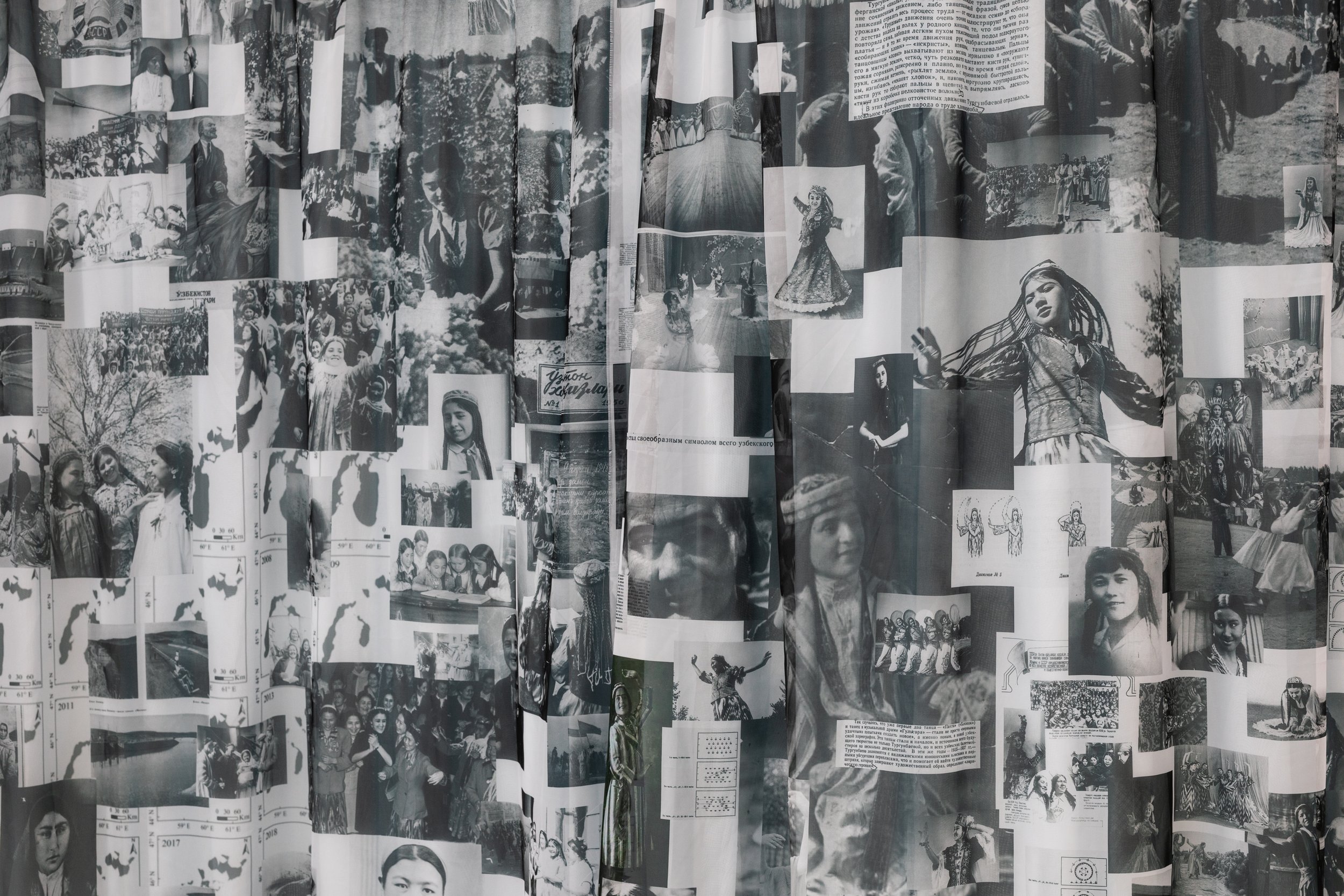Taming Waters and Women in Soviet Central Asia
The project for Matter of Art Biennale by DAVRA research collective (Madina Joldybek, Zumrad Mirzalieva, Saodat Ismailova) explores the historical connections between inadequate water exploitation and female labor in Soviet-era Central Asia. Centered around The Great Fergana Canal and rapid modernisation, the project examines the intentional manipulation of both water resources and women for industrial ends.
In 1917, Central Asia fell under the influence of the socialist political regime. The relentless drive for modernization, characterized by a strong emphasis on cotton monoculture and collective labor, inevitably led to acute environmental and social consequences. As women were pushed into the workforce to support the regime's economic ambitions, the ecology of the region faced the harsh reality of water-intensive agricultural practices. Viewing these issues through an intersectional lens, “Taming Women and Waters in Soviet Central Asia” encourages contemplation of the simultaneous ongoing exploitation of both human and natural resources in the pursuit of socialist ideals.
The environmental impact of socialism in Uzbekistan is evident in the barren river landscapes that now dominate the region. Once flourishing waterways, these rivers have dwindled to mere dry beds, stark symbols of socialist transformation for the sake of cotton cultivation. This shift reflects the influential role of dominant social and political interests in shaping both landscape and identity within the context of environmental change.
Alongside these environmental shifts, the societal dynamics experienced significant reconfiguration, particularly in regards to the role of women. Despite rhetoric lauding women's empowerment under socialism, women were often viewed as instruments serving the ideological agendas of the regime. Transitioning from predominantly private spheres to active engagement in the public arena, particularly within labor politics, women faced the imposition of a dual burden. This transition required them to balance traditional familial responsibilities with newfound obligations in the workforce, perpetuating a cycle of exploitation.
Taming Women and Waters in Soviet Central Asia / 2024 / research-based multimedia installation / archival films (8 min), archival work (collage, print on fabric, 200 × 700 cm), photography series (each print 60 × 48 cm), textile works (embroidery, each 94 × 119 cm) / courtesy of the artists
* Commissioned by the Biennale Matter of Art Prague.
Biennale Matter of Art
June 14 - September 29, 2024
Prague, Czech Republic
Participants:
Madina Joldybek
Zumrad Mirzalieva
Saodat Ismailova
MAKE VOICES HEARD symposium
December 16, 2023
Prague, Czech Republic






















